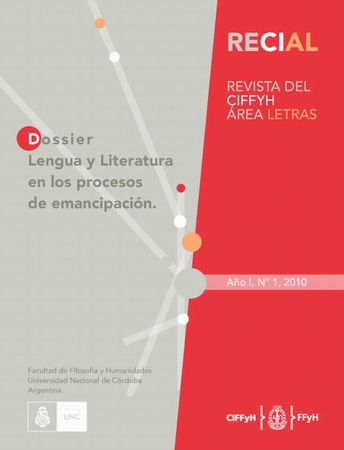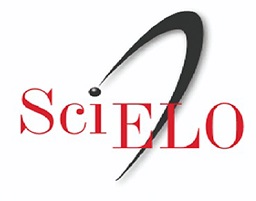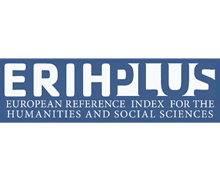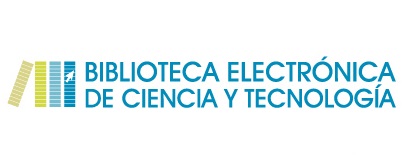La Bilbia y sus concepciones de lengua
DOI:
https://doi.org/10.53971/2718.658x.v1.n1.8199Keywords:
bible, linguistics, language, exegesis, theologyAbstract
In the following pages I will try to find some ideas, even if they are fragmentary, about the linguistic phenomenon under the light of the biblical text. This composition has only an introductory nature, and it has no intentions to be exhaustive. For these reason, the meticulous study of the original texts (Hebrew in the Old Testament, Greek in the New Testament) will not be considered. Only the specific terminology, fundamental to the meaning, will be taken in consideration.
The aim of this paper is not to enter in arguments of theories, paradigms and schools, but to link some concepts in a preliminary, figurative and sometimes intuitive way. An open semiosis is preferred, constructing a place between various disciplines and paradigms.
Five moments will be studied in which the linguistics concerns are evident: the Creation of the world and the man, the Tower of Babel, the Incarnate Word of John’s Gospel, the gift of speaking in tongues in Pentecost and the final redemption of the last chapter of Revelation.
Downloads
References
Acero, Juan José, Bustos, Eduardo y Quesada, Daniel (1985) Introducción a la filosofía del lenguaje. Ediciones Cátedra S.A., Madrid.
Agustín de Hipona (1940) La Ciudad de Dios. Club de Lectores, Buenos Aires.
Alston, William P. (1985) Filosofía del lenguaje. Alianza Editorial S.A., Madrid.
Austin, John (1982) Cómo hacer cosas con palabras. Paidós, Buenos Aires.
Benveniste, Emile (1976) Problemas de lingüística general (dos volúmenes). Siglo XXI Editores, México.
Boman, Thorleif (1960) Hebrew Thought compared with greek. SCM Pres, London.
Bonhoeffer, Dietrich (1992) Creazione e caduta. Editrice Queriniana, Brescia. Las citas son de traducción personal desde el italiano.
Borges, Jorge Luis (1997) “El Golem”. En Antología poética 1923-1977. Alianza Editorial, Madrid.
Bourdieu, Pierre (1985) ¿Qué significa hablar? Akal/Universitaria, España.
Briceño Guerrero, José Manuel (1970) El origen del lenguaje. Monte Ávila Editores, Caracas.
Calvino, Jean (1994) Institución de la Religión Cristiana (dos tomos). Fundación Editorial de Literatura Reformada, Rijswijk.
Cassirer, Ernst (1959) Mito y lenguaje. Ediciones Galatea-Nueva Visión, Buenos Aires.
Eco, Umberto (1999) Lector in fabula. Lumen, Barcelona.
Fabietti, Ugo (2004) Elementi di antropologia culturale. Mondatori Università, Milano. Las citas son de traducción personal desde el italiano.
Frye, Northrop (1988) El gran código. Editorial Gedisa S.A., Barcelona.
Gorgias (1996) Encomio de Helena. En Melero Bellido, Antonio (curador), Sofistas. Testimonios y Fragmentos, Gredos, Madrid, p. 200-211.
Graves, Robert y Patai, Raphael (2000) Los mitos hebreos. Alianza Editorial, Madrid.
Hacking, Ian (1979) ¿Por qué el lenguaje importa a la filosofía? Editorial Sudamericana, Buenos Aires.
Hanna, Robert (1993) Ayuda gramatical para el estudio del Nuevo Testamento griego . Editorial Mundo Hispano, El Paso.
Henry, Mathew (1999) Comentario de la Biblia. Unilit, Miami.
Kripke, Saúl (1985) El nombrar y la necesidad. Universidad Autónoma de México, México.
Kuhn, Thomas (1971) La estructura de las revoluciones científicas. Fondo de Cultura Económica, México.
Mâle, Emile (1986) Le origini del Gotico: L’iconografia medioevale e le sue fonti. Editoriale Jaca Book, Milano.
Manson, Thomas Walter (1975) Cristo en la teología de Pablo y Juan. Ediciones Cristiandad, Madrid.
Pascal, Blaise (2004) Pensieri (Les penseés). Edición a cargo de Carlo Carena. Torino, Einaudi.
Roca Pons, José (1973) El lenguaje. Editorial Teide, Barcelona.
Recanati, Francis (1981) La transparencia y la enunciación. Introducción a la Pragmática. Hachette, Buenos Aires.
Ricoeur, Paul (2000) Del texto a la acción. Ensayos de hermenéutica II. Fondo de Cultura Económica de Argentina, Buenos Aires.
Robbins, Robert H. (1990) “Apéndice: Historia de la lingüística”. En Newmeyer, Frederick (compilador), Panorama de la lingüística moderna. Tomo 1: Teoría lingüística: fundamentos , Visor, Madrid, p. 529-552.
Sazbón, José (compilador) (1983) Saussure y los fundamentos de la lingüística. Centro Editor de América Latina, Buenos Aires.
Strong, James (2002) Nueva Concordancia Strong Exhaustiva. Editorial Caribe, Nashville.
Verón, Eliseo (1987) La semiosis social. Fragmentos de una teoría de la discursividad . Gedisa, Buenos Aires.
Vine, William E. (1999) Diccionario Expositivo de Palabras del Antiguo Testamento Exhaustivo . Editorial Caribe, Nashville.
Vine, William E. (1984) Diccionario Expositivo de Palabras del Nuevo Testamento Exhaustivo . Clie, Barcelona.
c. Versiones bíblicas consultadas (con abreviatura)
BAD: Biblia al Día (1979)
BJ: Biblia de Jerusalén (1976)
BL: Biblia Latinoamericana (1995)
BLA: Biblia de las Américas (1986)
DHH: Dios Habla Hoy (1996)
NC: Versión Nacar-Colunga (1944)
NVI: Nueva Versión Internacional (1984)
RV: Versión Reina Valera (1960)
VJ: Versión Jünemann (1992)
VU : Vulgata Latina (siglo V)
Downloads
Published
Issue
Section
License
Aquellos/as autores/as que tengan publicaciones en esta revista, aceptan los términos siguientes:
- Los/as autores/as conservarán sus derechos de autor y garantizarán a la revista el derecho de primera publicación de su obra, el cuál estará simultáneamente sujeto a la Licencia de reconocimiento de Creative Commons que permite a terceros compartir la obra siempre que se indique su autor y su primera publicación esta revista.
- Los/as autores/as podrán adoptar otros acuerdos de licencia no exclusiva de distribución de la versión de la obra publicada (p. ej.: depositarla en un archivo telemático institucional o publicarla en un volumen monográfico) siempre que se indique la publicación inicial en esta revista.
- Se permite y recomienda a los/as autores/as difundir su obra a través de Internet (p. ej.: en archivos telemáticos institucionales o en su página web), luego de su publicación en la revista. (Véase El efecto del acceso abierto).

























